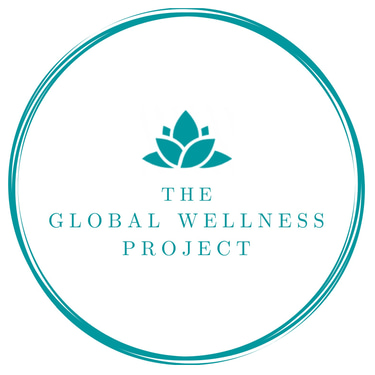Alzheimer's: The Silent Thief of Memories
Understanding Alzheimer's as Type 3 Diabetes: The Global Impact, management and treatment.
ANTI-AGINGPREVENTIVE MEDICINEHEALTH
11/14/20244 min read


Alzheimer's Disease: A Growing Global Health Crisis
The global burden of Alzheimer's disease is substantial and growing. In 2020, over 55 million people worldwide were living with dementia, with Alzheimer's being the most common form. This number is projected to nearly double every 20 years, reaching 78 million in 2030 and 139 million in 2050. The global cost of dementia is staggering, exceeding US$1 trillion annually.
Beyond the financial impact, Alzheimer's disease also places a significant burden on families and caregivers. Millions of individuals provide unpaid care to loved ones with Alzheimer's, often experiencing significant stress, burnout, and financial strain.
To combat this crisis, a multifaceted approach is essential. Investing in research to develop early diagnostic tools, effective treatments, and preventive strategies is crucial. Additionally, promoting public health initiatives, such as encouraging healthy lifestyles and providing community support services, can significantly reduce the burden of Alzheimer's. By prioritizing research, advocating for supportive policies, and promoting healthy lifestyles, we can work towards a future where Alzheimer's disease is no longer a devastating threat.
Early diagnosis is key
Individuals with a family history of Alzheimer's disease, particularly those with a first-degree relative (parent, sibling, or child) diagnosed with the condition, are at increased risk. Additionally, genetic factors, such as the presence of specific gene mutations (like APOE4), can contribute to the development of Alzheimer's. Early diagnosis is crucial for implementing timely interventions and improving quality of life. Regular cognitive assessments, memory tests, and brain scans can help identify early signs of cognitive decline.
The Link Between Alzheimer's and Type 3 Diabetes
A compelling theory suggests that Alzheimer's disease, often referred to as "Type 3 Diabetes," is linked to insulin resistance in the brain. Insulin, a hormone essential for regulating blood sugar, also plays a crucial role in brain function. When the brain becomes resistant to insulin, it can lead to impaired cognitive function and, ultimately, Alzheimer's disease.
Managing, Treating, and Improving Quality of Life
While there's currently no cure for Alzheimer's, various strategies can help manage symptoms and improve quality of life for individuals with the disease:
Medication:
Cholinesterase inhibitors: These drugs can help improve memory and thinking skills.
NMDA receptor antagonists: These medications can slow cognitive decline.
Lifestyle Modifications:
Regular Exercise: Physical activity can help boost brain health and reduce the risk of cognitive decline. You can always walk at home using walking pads while watching TV or listening to you favorite music.
Healthy Diet: A balanced diet rich in fruits, vegetables, and whole grains can support brain health.
Cognitive Stimulation: Engaging in mentally stimulating activities like puzzles, reading, and learning new skills can help keep the brain active. Or just a Sudoku book is all you need.
Social Interaction: Maintaining social connections can reduce feelings of isolation and loneliness, which can contribute to cognitive decline.
Diet Modifications:
Control Sugar Intake: High sugar intake can lead to insulin resistance, a factor associated with Alzheimer's disease.
Limit Processed Foods: Processed foods often contain unhealthy fats, excessive sodium, and added sugars, which can contribute to cognitive decline.
Monitor Sodium Intake: Excess sodium can contribute to high blood pressure, a risk factor for cognitive decline.
Hydration: Dehydration can impair cognitive function. Ensure adequate water intake throughout the day.
Antioxidant-Rich Foods: Foods rich in antioxidants, such as berries, nuts, and dark leafy greens, may help protect brain cells from damage.
Omega-3 Fatty Acids: Fatty fish like salmon, mackerel, and tuna are excellent sources of omega-3 fatty acids, which are beneficial for brain health.
Mediterranean Diet: This diet, rich in fruits, vegetables, whole grains, lean protein, and healthy fats, has been linked to reduced risk of Alzheimer's.
Medical and Technology Tools
Blood Glucose Meters: To monitor blood sugar levels, especially for individuals with both diabetes and Alzheimer's.
Wearable Health Devices: These devices can track various health metrics, including heart rate, sleep patterns, and activity levels. They can provide valuable insights into overall health and potential cognitive decline.
Cognitive Training Apps: These apps offer brain-training exercises designed to improve memory, attention, and problem-solving skills. Regular use of these apps can help maintain cognitive function.
Remote Patient Monitoring Systems: These systems allow healthcare providers to monitor patients' health remotely, including vital signs, medication adherence, and cognitive function.
Smart Home Technology: Smart home devices can automate tasks, such as lighting and temperature control, reducing stress and improving safety for individuals with Alzheimer's.
Conclusion
While Alzheimer's disease remains a complex and challenging condition, ongoing research and advancements in medical science offer hope for the future. By understanding the underlying mechanisms, promoting healthy lifestyles, and utilizing available treatments, we can work towards improving the lives of individuals with Alzheimer's and their families.
Citations:
De la Monte, S. M., & Wands, J. R. (2008). Alzheimer's disease is type 3 diabetes. Journal of Diabetes Science and Technology, 2(6), 1149-1158.
Struble, K., & Holtzman, D. M. (2017). Alzheimer's disease as type 3 diabetes: therapeutic implications. Nature Reviews Neurology, 13(7), 413-428.
Disclaimer:
The information provided in this blog post is intended for general knowledge and informational purposes only, and does not constitute medical advice. It is important to consult with a healthcare professional for any health concerns or before making any decisions related to your health or treatment.
While the information provided in this blog post is believed to be accurate, it is not a substitute for professional medical advice, diagnosis, or treatment. Always seek the advice of your physician or other qualified healthcare provider with any questions you may have regarding a medical condition.
The author of this blog post is not responsible for any adverse effects or consequences resulting from the use of the information provided.
Connect
Explore wellness topics and connect with providers.
Contact Us
Join
info@theglobalwellnessproject.com
© 2024. All rights reserved.
